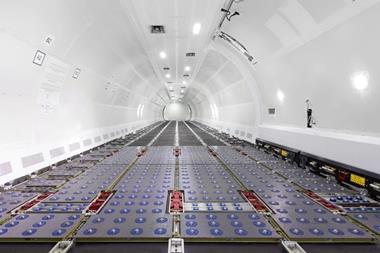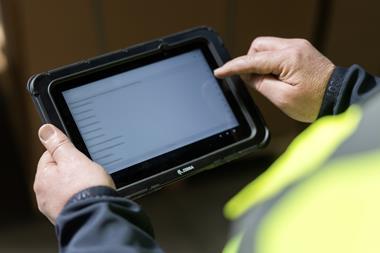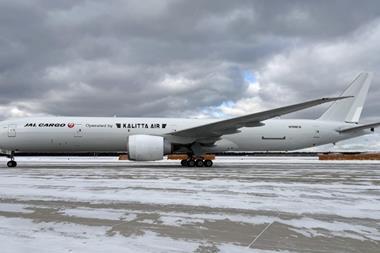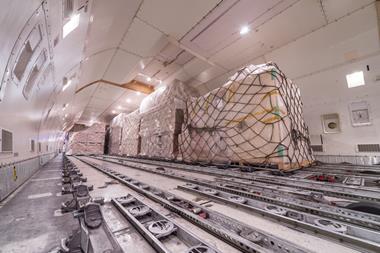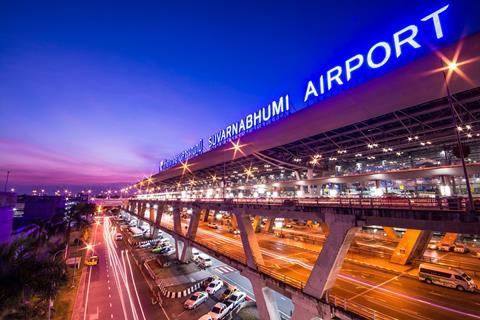
Handler Bangkok Flight Services (BFS) has become the second firm this week to add an embargo on general cargo imports due to a surge in volumes.
The Bangkok Suvarnabhumi Airport handler said that it would not accept import cargo between midnight on Monday February 12 and the same time on Sunday February 18 due to its 40,000 sq m warehouse reaching capacity.
BFS said it decided to add the embargo "due to unprecedented volumes of cargo due to the Red Sea crisis, resulting in a modal shift from sea to air, and a higher than expected surge due to the Chinese New Year".
All other shipments, including exports, transhipments and special cargo imports, such as perishables, pharma, dangerous goods, radioactive, valuable and live animals will continue to be processed as normal.
BFS had been struggling to manage the flow of cargo over the last week and had been urging customers to pick up cargo using its track and trace service, rather than emailing, phoning or enquiring in person.
At one point it appeared that the handler was catching up with the backlog but was later forced to implement the embargo.
BFS is the second handler in recent days to announce an embargo after dnata introduced a stop on imports for its Dubai facilities.
The dnata embargo began at midnight on Monday February 13 and will run until Wednesday at the same time.
The handler said that in January it had processed 76,000 tonnes of cargo at Dubai International and Dubai World Central, which represents a year-on-year increase of 45%.
The surge was particularly noted in imports of general cargo such as fast-moving consumer goods, electronics and fashion accessories.
At the same time, the company has been implementing a systems cutover.
Data provider Xeneta recently reported that global air cargo volumes in January rose 10% year on year.
Some of January’s higher air cargo volumes are likely due to some shippers, especially in the apparel industry and producers of manufacturing components, shifting from ocean transport to air due to the need to move goods ahead of the Lunar New Year, said Xeneta.
The platform observed ‘extraordinary’ surges in air cargo volumes from China and Vietnam to Europe for three consecutive weeks in January, surpassing even their peak season highs.
Another data provider, WorldACD, also said that January’s volumes were “significantly up” on a year ago.
WorldACD said that some of the increase in demand may reflect a switch to air or sea-air due to vessels diverting around the Cape of Good Hope as a result of attacks on ships passing through the Red Sea.
The timing of the Lunar New Year (LNY) holiday, which this year starts on February 10 rather than January 22, may also be playing a role in the increased volumes.
https://www.aircargonews.net/region/middle-east/dubai-backlogs-prompt-dnata-to-add-a-temporary-cargo-embargo/











